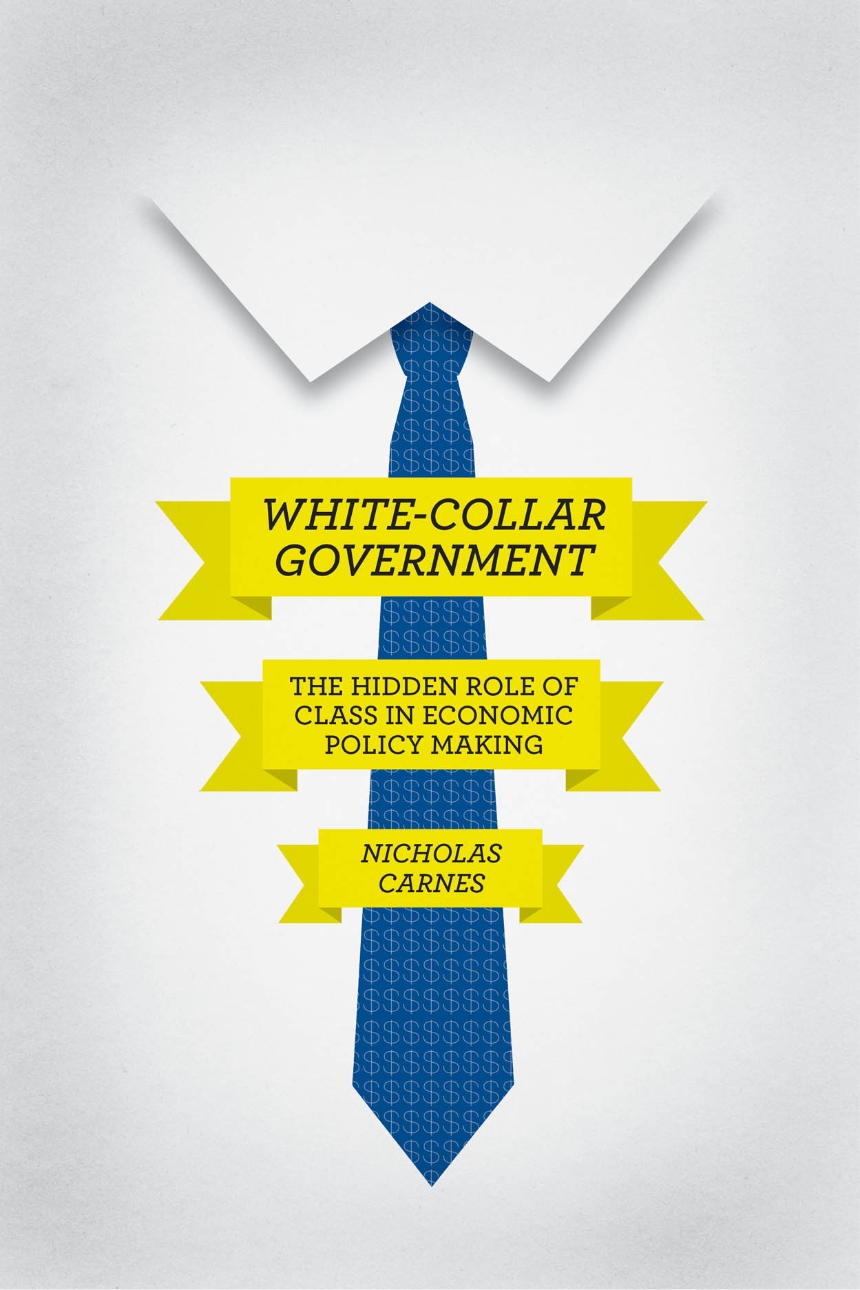White-Collar Government
The Hidden Role of Class in Economic Policy Making
9780226087146
9780226087009
9780226087283
White-Collar Government
The Hidden Role of Class in Economic Policy Making
Eight of the last twelve presidents were millionaires when they took office. Millionaires have a majority on the Supreme Court, and they also make up majorities in Congress, where a background in business or law is the norm and the average member has spent less than two percent of his or her adult life in a working-class job. Why is it that most politicians in America are so much better off than the people who elect them— and does the social class divide between citizens and their representatives matter?
With White-Collar Government, Nicholas Carnes answers this question with a resounding—and disturbing—yes. Legislators’ socioeconomic backgrounds, he shows, have a profound impact on both how they view the issues and the choices they make in office. Scant representation from among the working class almost guarantees that the policymaking process will be skewed toward outcomes that favor the upper class. It matters that the wealthiest Americans set the tax rates for the wealthy, that white-collar professionals choose the minimum wage for blue-collar workers, and that people who have always had health insurance decide whether or not to help those without. And while there is no one cause for this crisis of representation, Carnes shows that the problem does not stem from a lack of qualified candidates from among the working class. The solution, he argues, must involve a variety of changes, from the equalization of campaign funding to a shift in the types of candidates the parties support.
If we want a government for the people, we have to start working toward a government that is truly by the people. White-Collar Government challenges long-held notions about the causes of political inequality in the United States and speaks to enduring questions about representation and political accountability.
See the web appendix referenced in the book.
200 pages | 61 line drawings, 8 tables | 6 x 9 | © 2013
Chicago Studies in American Politics
Political Science: American Government and Politics, Public Policy
Reviews
Table of Contents
1 White-Collar Government
What Is Class?
The Unequal Social Class Makeup of American Political Institutions
The Elephant in the Room
Why Does Class Matter?
The Evidence
2 Voting with Class
Legislative Voting as a Window into the Importance of Class
Measuring the Divisions
Class and Legislative Voting Today
Class and Legislative Voting during the Postwar Period
The Enduring Imprint of Class
Representational Inequality in “Ayes” and “Nays”
3 Before the Votes are Cast
Legislative Entrepreneurs
The Role of Class
Measuring Legislative Entrepreneurship
The Policies Legislators Propose
The Policies Legislators Pass
Leaving the Working Class Off the Agenda
4 Class, Opinions, and Choices
Out of Touch, or Out of Step?
Inside the Mind of a Member of Congress
The Importance of Opinions
Who’s Out of Touch Now?
Out-of-Step Government
5 Economic Policy Making in Class-Imbalanced Legislatures
Representation and Policy Making
What Would a Class-Balanced Congress Have Done?
When the Working Class Holds Office
Blue-Collar Government
The Economic Consequences of White-Collar Government
6 Fixing the Broken Mirror
What’s Keeping the Working Class Out of Office?
Thinking Bigger about Inequality
Up Front There Ought’a Be a Man in Black
Notes
References
Awards
American Political Science Association: Alan Rosenthal Award
Won
American Political Science Association: Gladys M. Kammerer Award
Won
